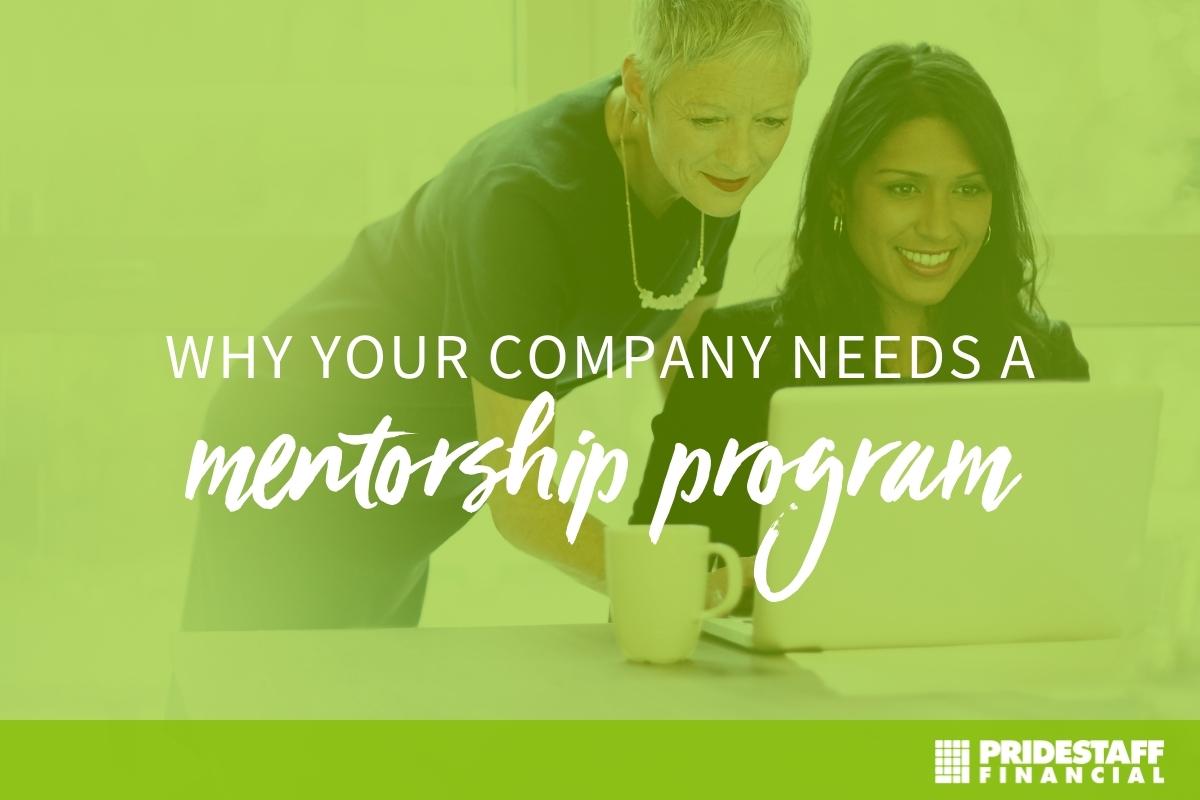Does Your Company Have a Mentorship Program? Reasons Why You Need One and How to Get Started.

Mentoring promising employees will benefit your company, as well as your employees. Mentoring means taking a personal interest in seeing that a mentee develops the talent and knowledge needed, not only to succeed but to have a successful career and contribute as much as possible to the company. Here are some reasons why you should start incorporating a mentoring program now, and how to get started.
Investing in their personal and career development:
Mentorship programs allow employees to take ownership of their own personal and professional development. Rather than feeling stagnant in their roles, employees exercise growth through their relationship with a mentor and have a trustworthy resource with whom to consult for advice.
It improves onboarding:
Onboarding is crucial these days when it comes to training new employees. It is easy for employees to feel overwhelmed. However, when they’ve established a mentor-mentee relationship, they have the added benefit and support of knowing who to go to should they run into questions or problems. Furthermore, once employees are trained, the mentorship program can lead to enhanced job satisfaction, which translates into increased productivity and lower turnover.
It creates leadership opportunities:
Since mentors are typically employees who have seniority within the company, and often, serve in leadership positions, mentees experience faster progression in their career growth. Mentorship programs offer personal attention and guidance for the mentee plus the mentor feels a deeper sense of purpose and strengthens their leadership position within the organization.
Reverse Mentoring:
Something you probably never thought about was the benefits of reverse mentoring! Mentorship isn’t a one-way street. Like all relationships, communication goes both ways, so mentors can learn from mentees through knowledge sharing. Think about the fact that employees see things from an entirely different perspective than you might and have had interactions with other employees across different cultures and spectrums. There are also generational differences, which means that younger generations can teach the older generations about new technology and upcoming trends while the older generations can share best work practices and help inform values. Through these programs, there is a deepened connection between employees and management.
How to get started:
The most important thing is to define your goals. For example, is knowledge transfer important to your company? How about employee retention or enhancing your client engagement? These need to be determined before you begin. The next step is to plan out your process for mentoring—and that begins by setting a budget. Then figure out how you are going to measure progress and success and build in bridging skills gaps. Now it’s time to get going! Start finding mentors, publicize the program internally (to enlist mentees), offer support to mentors (through guidance, training, and rewards), and launch the program by making careful matches between mentors and mentees.
Looking to recruit great accounting and finance talent?
PrideStaff Financial has consistently won awards for exceptional client satisfaction. Our highly skilled staffing consultants can help your company find the right candidates for your company. Contact us today to learn more.



